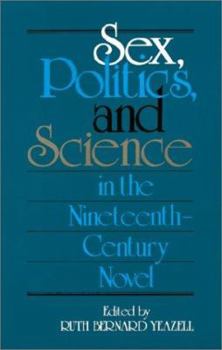Sex, Politics, and Science in the Nineteenth-Century Novel
(Part of the Selected Papers from the English Institute Series)
Select Format
Select Condition 
Book Overview
Probing the connections between literary and sexual politics, the authors question the absence of the police from Barchester Towers and the presence of homoeroticism in "The Beast in the Jungle". They consider the Victorians' sharpened sense of their own evanescence and the fin de siecle's fevered preoccupation with syphilis, the terror of "women people" in the naturalist novel, and the anxious connection between female authorship and prostitution in George Eliot and Hardy, Bram Stoker, and James Barrie but also nineteenth-century economists and evolutionary biologists, with psychiatrists, sociologists, and even obstetricians.
"The essays in this volume show that criticism of the novel has come a long way from all merely appreciative or celebratory kinds of readings." Ruth Yeazell writes in her introduction. "Refusing to isolate the writing of fiction from other forms of representation, the authors contribute to an analysis not only of the nineteenth century's novels, but of the compelling diagnosis of nineteenth-century anxiety, however-- even their success in identifying such an anxiety-- may prompt us to ask what anxieties of our own this new habit of reading seeks to manage and control."





